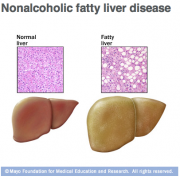Empowering Your Celiac or Allergic Child
 No matter the age, celiac disease and food allergy diagnoses are going to require some love, support, and empowerment, but especially for kids. Since it’s Celiac Disease Awareness Month (May) and Food Allergy Awareness Week (May 13-19), there’s no better time to discuss some easy ways we can take away the ‘scaries’, instill confidence and empower our celiac or allergic children.
No matter the age, celiac disease and food allergy diagnoses are going to require some love, support, and empowerment, but especially for kids. Since it’s Celiac Disease Awareness Month (May) and Food Allergy Awareness Week (May 13-19), there’s no better time to discuss some easy ways we can take away the ‘scaries’, instill confidence and empower our celiac or allergic children.
- by Rebecca Pytell at Strength and Sunshine 1
Whether you’re a parent, a teacher, a friend or family member, or just another (young) adult with celiac disease or food allergies, it’s up to us to help our youth feel safe and empowered in their everyday lives so that they can cultivate the self-confidence they need to succeed and grow past their adversities.
1. Teach them about their disease/allergy. Don’t hold back information, even when they’re young. Depending on their age, make the essential information easy and understandable, but don’t hide the facts and severity of celiac disease and food allergies. They will gain so much confidence when they know what is happening to them if they have a reaction or feel sick and why they need to eat differently than someone else.
2. Take them grocery shopping with you. Let them see and learn to distinguish the foods they can eat and enjoy. Make it fun by allowing them to pick out one new real whole food to try each time and a fun treat. Make a game out of reading ingredient lists on the backs of packages as well. This gives them crucial skills and teaches them what ingredients/words to look out for.
3. Cook and bake with them. Possibly one of the most important things you can do to empower kids with celiac disease and food allergies! With all those new foods you bought at the grocery store, take the opportunity to create the meals they’ll be eating, together, as a family. You’ll be giving them the skills to cook for themselves as they get older and it allowing them to get excited about the foods they eat and create. This drastically takes the “scaries” and “FOMO” out of food and eating. There are so many allergy-free and gluten-free homemade versions of the foods their friends may be eating that they can just make at home!
4. Give them space and independence to be self-sufficient. Yes, super young kids need to be safe, but being a helicopter and attaching yourself to them any and everywhere they are is going to hurt them in the long run. That’s why it’s SO important to teach them about their allergy and/or disease. Equip them with the tools and understanding they need to take care of themselves when food is present. You can’t monitor them all the time for the rest of their lives, so begin letting them have independence earlier rather than later. And parents, kids are smarter than you think. You need to trust them, so they can trust themselves when their in situations on their own.
5. Show them they are not alone and that there is nothing “wrong” with them; join a support group. When the diagnosis is new and/or sudden, feelings of loneliness and “only me” are bound to happen. BUT, there are (sadly) SO many people, kids and adults, with celiac disease and other food allergies. It just happens that you need a different diet and need to avoid certain foods to stay healthy. It’s OKAY and having celiac disease or food allergies won’t define you, at least, doesn’t need to. Finding a support group, forum, or events and expos that center around those like them (or you) are critical for regaining that confidence again and actually seeing they’re not the only one.
6. Teach them about bullying and peer pressure. Here’s where empowering them with enough knowledge about their disease and allergies to stand up for themselves and not let offhand comments from curious and naive peers, even ignorant and uninformed adults, to tear them down at every turn. Kids can be really mean and they’ll pick out any abnormality to harp on. Having celiac disease or food allergies while being in school can seem daunting, but raising awareness at schools, to friends and family, and teaching respect are that “it’s not a joke” are essential steps in the process of creating safe environments.
7. Encourage them to show their friends that they can still enjoy delicious foods. They may not be able to have the Chips Ahoy cookies their friends have during lunchtime, but they can have other goodies that are just as easy, delicious, and totally safe for any child in the classroom. I can specifically remember sitting in the cafeteria, opening my lunchbox, finding a pack of the gluten-free cookies, and having my friends begging to have them! I’d let them try my special gluten-free (allergy-free) cookies to “show off” how good they were and that set the tone for how delicious and not restrictive my diet actually was!
Facebook: Strength and Sunshine Twitter: @RebeccaGF666 Instagram: rebeccagf666 Pinterest: RebeccaGF666 Bloglovin’: Strength and Sunshine Google+: Rebecca Pytell













